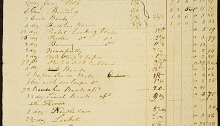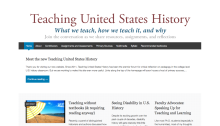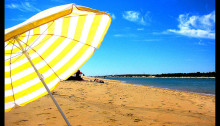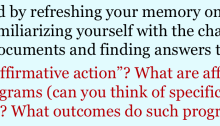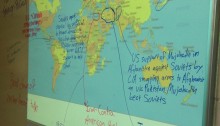Finding Lewis and Clark
It’s good to be back from summer hiatus. Like many of you, over the summer months I devoted quite a bit of time to preparing courses for the fall semester. One of my courses this fall is a senior-level readings seminar devoted to the 19th Century American West, drawing on collections of primary sources, scholarly…

